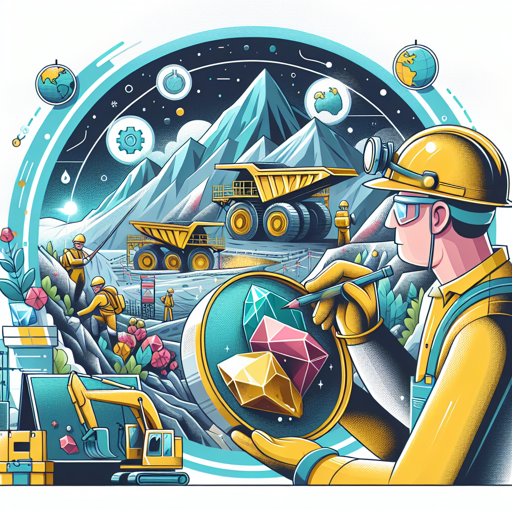Modern Mining Ethics: The Impact on Industry Standards
An exploration of the ethical considerations shaping today's mining industry and its standards.

Introduction
In the world of minerals and gemstones, mining is an age-old practice that has evolved significantly over time. But as we delve deeper into the earth’s crust to uncover its hidden treasures, the ethical considerations of this industry have come under the microscope. This article explores the ethical dilemmas in modern mining and their influence on industry standards.
Modern Mining and Ethical Considerations
Modern mining is intricate, involving a series of processes from exploration, extraction, and processing, to the final product’s sale. However, these operations often raise serious ethical questions relating to environmental conservation, labor rights, indigenous communities, and corporate responsibility.
Environmental Conservation
Mining operations can have devastating effects on the environment, leading to deforestation, soil erosion, and water contamination. The quest for minerals often disrupts ecosystems, endangering flora and fauna.
Labor Rights
On the human front, mining operations often involve hazardous conditions, potentially exposing workers to health risks. Despite technological advancements, many mine workers, particularly in developing nations, still face exploitative working conditions.
Indigenous Communities
Mining activities can also affect indigenous communities who rely on the land for their livelihood and cultural identity. Without proper consultation and consent, these activities can lead to conflict and social unrest.
Corporate Responsibility
Finally, mining companies have a duty to act responsibly, ensuring sustainable practices, accountability, and transparency in their operations.
Mining Ethics and Industry Standards
The ethical considerations in mining have led to the development of industry standards to govern mining operations. These standards provide guidelines for responsible mining, including environmental management, labor rights, community engagement, and corporate governance.
“Ethics is knowing the difference between what you have a right to do and what is right to do.” - Potter Stewart
| Ethical Consideration | Industry Standard |
|---|---|
| Environmental Conservation | Implementation of environmental management systems, emission reduction strategies, and biodiversity conservation plans. |
| Labor Rights | Compliance with labor laws, provision of safe working conditions, and fair wages. |
| Indigenous Communities | Respect for indigenous rights, consultation and consent processes, and benefit sharing. |
| Corporate Responsibility | Transparency in operations, accountability to stakeholders, and sustainable business practices. |
For further reading, visit the International Council on Mining and Metals (ICMM), which provides comprehensive guidelines on mining ethics and industry standards.
Conclusion
As we continue to dig deeper into the earth’s crust, the ethical implications of mining cannot be ignored. The modern mining industry must strike a balance between the pursuit of minerals and the need to uphold ethical standards. Industry-wide commitment to these standards is not just beneficial for the environment, labor, and communities, but it also guarantees the mining industry’s sustainable future.